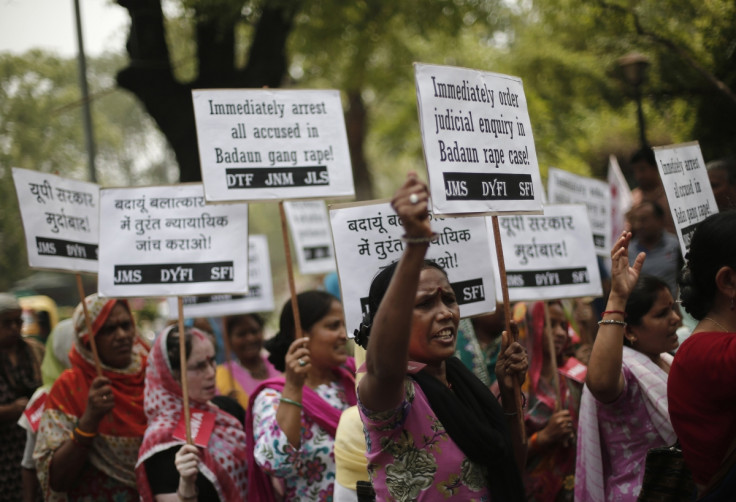India Gang Rapes: Anti-Rape Alarm Jeans Not the Answer

Two young Indian women have come up with a creative way to combat their country's pervasive problem of sexual violence against women: a pair of high-tech jeans.
Designed by Diksha Pathak, 21, and Anjali Srivastava, 23, students in India's northern city of Varanasi, the trousers enable to the wearer to send a distress signal to the nearest police station when activated. Featuring a specially installed tracker that activates when pressed, the jeans cost under 60p to buy and can be worn for three months before the batteries wear out.
"My father is often making himself ill with worry each time I am coming home late," explained Pathak, who is a science student. "These terrible gang rapes of women that we have heard so much about recently shocked me and my colleague to the very core. Hopefully no other women will have to suffer if they are wearing our clothing."
Around 200 police stations in the area have reportedly been equipped with the technology to track the devices. It is indisputable that the jeans are innovative. According to the National Crime Record Bureau, incidents of rape have gone up tenfold in the last 40 years. From 1971 to 2012, recorded cases soared from under 2,500 to over 25,000 – without counting the estimated 90% of cases that are not reported to the police.
Since the fatal gang-rape of an unnamed 23-year-old medical student in 2012, India has tightened its anti-rape laws and nationwide protests led to the crime being punishable by death. But a recent spate of brutal sexual violence against young women shows that this is not enough. Government statistics show a rape is committed every 22 minutes in the country.
In May, two teenage cousins from Katra Village in the northern state of Uttar Pradesh were gang-raped and hung from a mango tree by their scarves. Days later, a 22-year-old girl was gang raped and strangled to death, before her face and body was burnt with acid in an attempt to disguise her identity.
Police inaction - which sparked recent protests after these incidents - highlights a flaw in the technology. When the two teenage girls were reported missing, the father of one said the police "refused to look for my girl" because he was of a lower caste. There is no guarantee that the authorities will act if the alarms is raised.
But such policing failures can be attributed to an entrenched culture of violence against women. The jeans are a superficial solution to a problem which lies much deeper. For India to modernise and end this spell of violence, the patriarchal backlash must end and cultural values that place women lower in the hierarchy have to be changed. Women shouldn't have to wear jeans with hidden alarms to ward off rapists.
Speaking to IBTimes UK, Sarah Green from End Violence Against Women, drew attention to the issue of blame.
"It is disturbing to read that lawmakers in India may press for anti-rape jeans technology to be available nationwide," Green said. "This 'technology' focuses on the responsibility of women to act to prevent rape when we urgently need Government, law-makers and police everywhere to focus on the intentions, method and impunity of rapists."
"When we already have cultures the world over which blame women for rape rather than rapists the implication here is obvious - a woman going about her business without rape alarm jeans might be deemed to be 'asking for it'."
And this is a risk in a culture where women are frequently subjugated and insecurity around the rising status of women in society is on the rise. Marital rape is not illegal in the country, so special clothing is futile in these cases. And among other underlying reasons, unemployment and poverty are all features among gangs of men who rape.
While rape occurs among the upper-classes too, the last decade has seen a stall in the number of jobs being created, as well as educational opportunities. In this environment, violence commands respect, asserts authority and identifies power. And the lack of authorial intervention has led to a widespread sense of impunity among attackers.
And while the jeans seem like bargain price to pay, around one quarter of the nation's population earn less than the international poverty threshold of $1.25, to be spent on essentials such as food.
Alarmed jeans are a creative invention in a time of need, but they are a sticking plaster over a gaping wound. For women to walk outside without fear for their safety, there are more problems to be addressed.
© Copyright IBTimes 2025. All rights reserved.




















